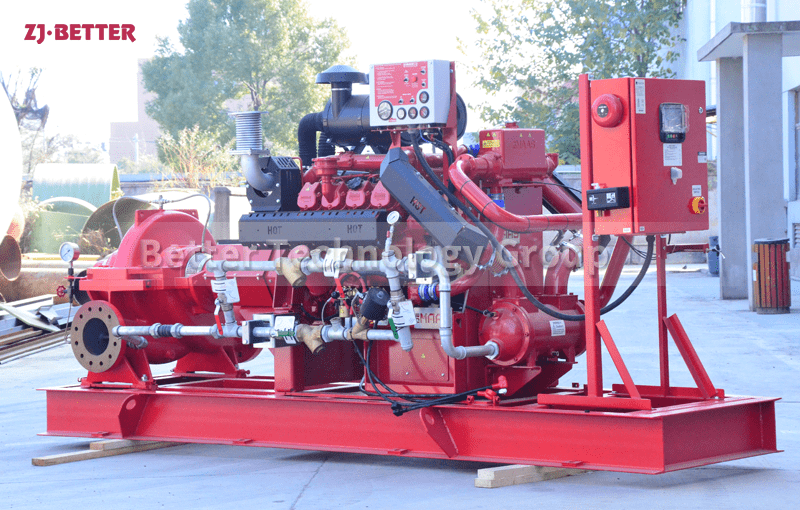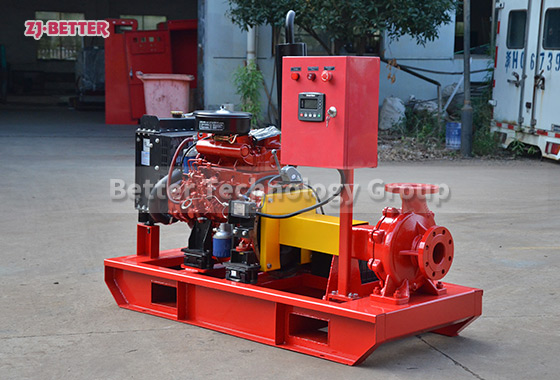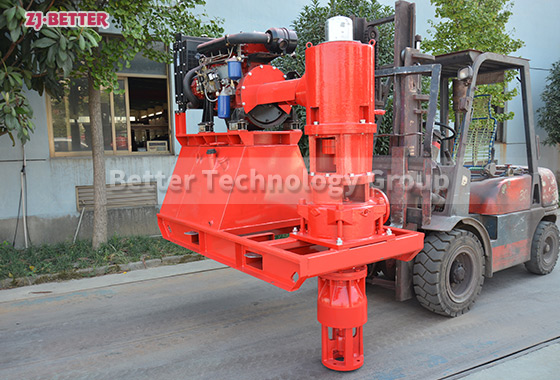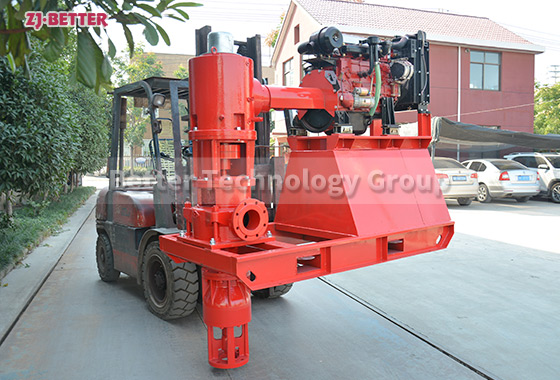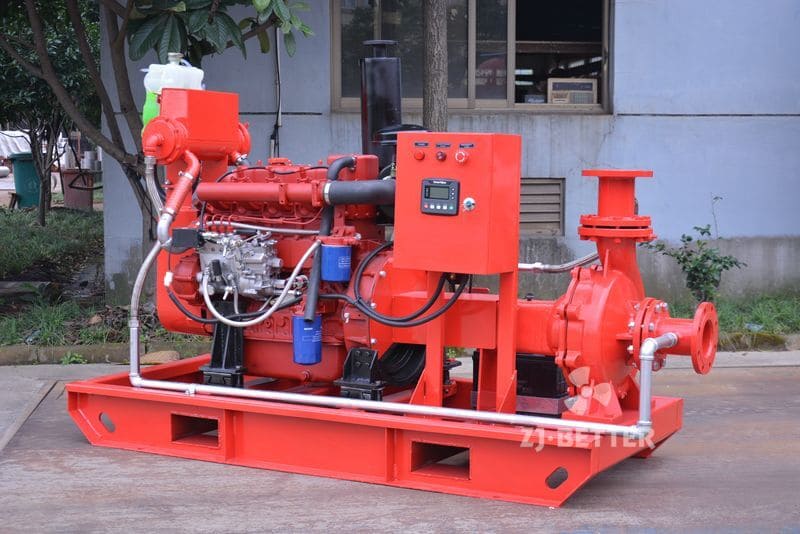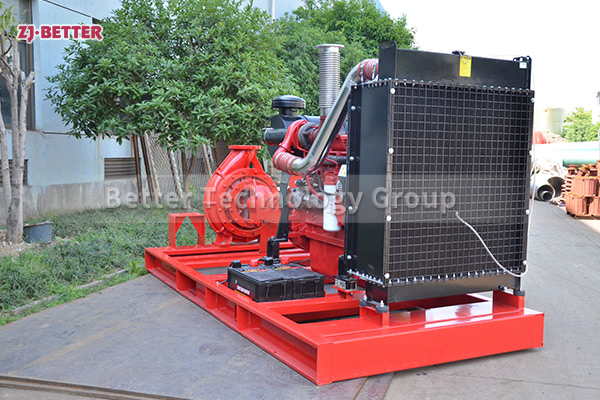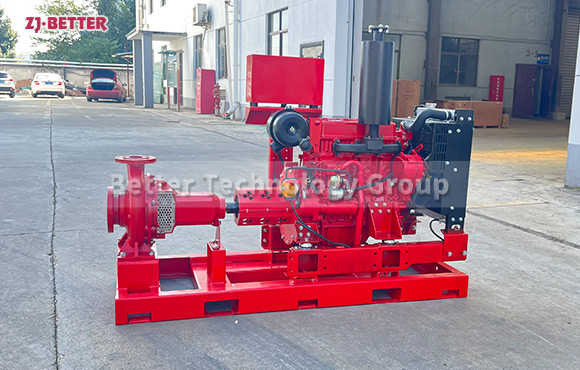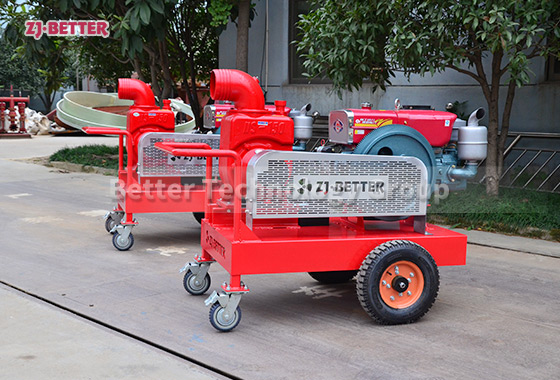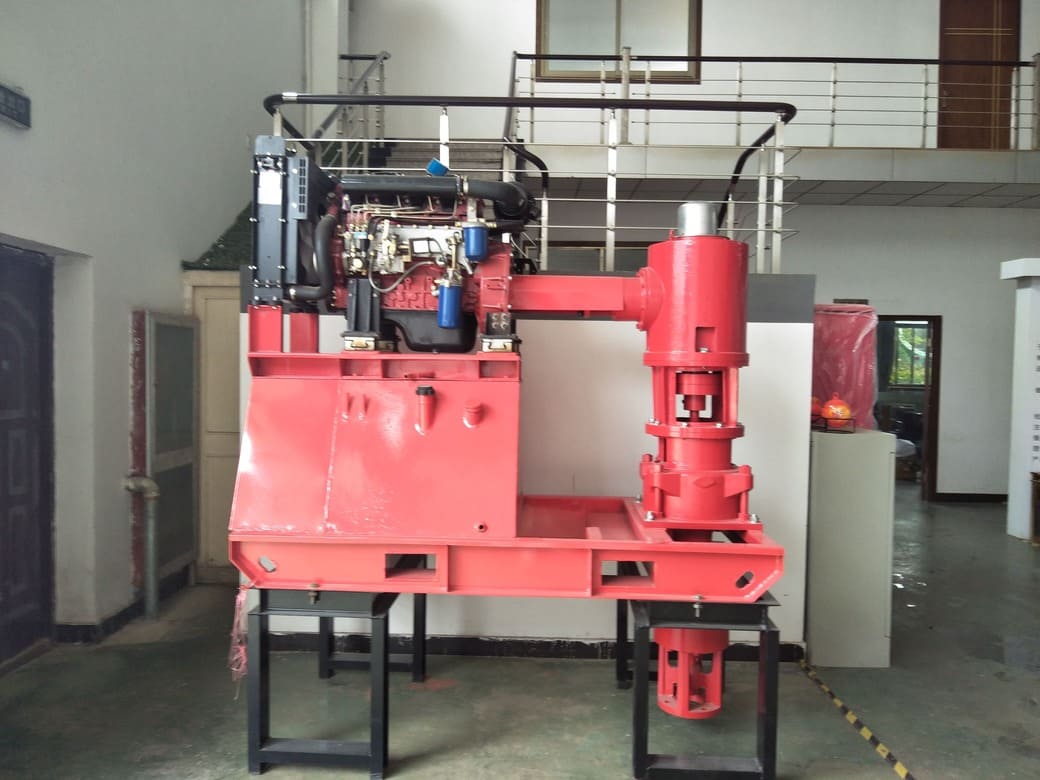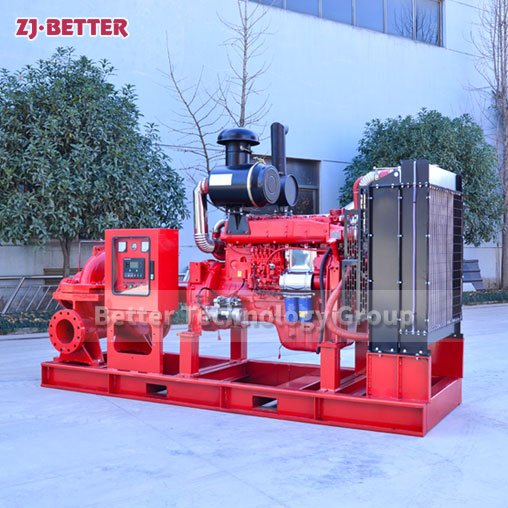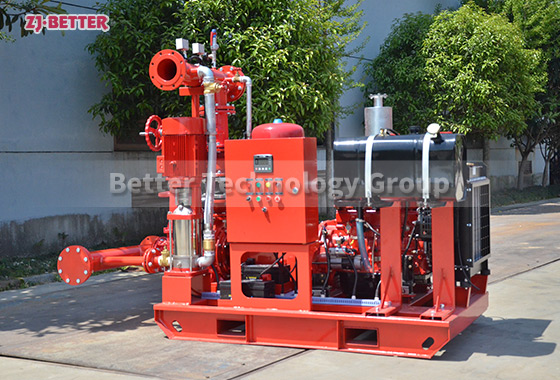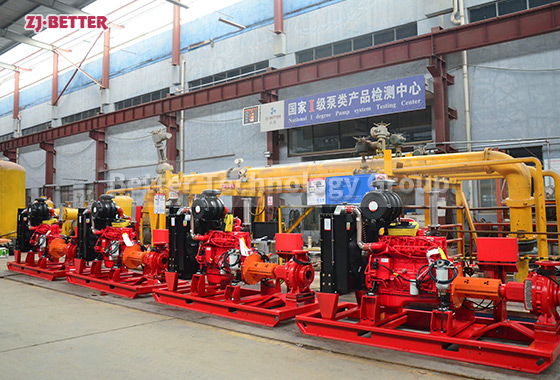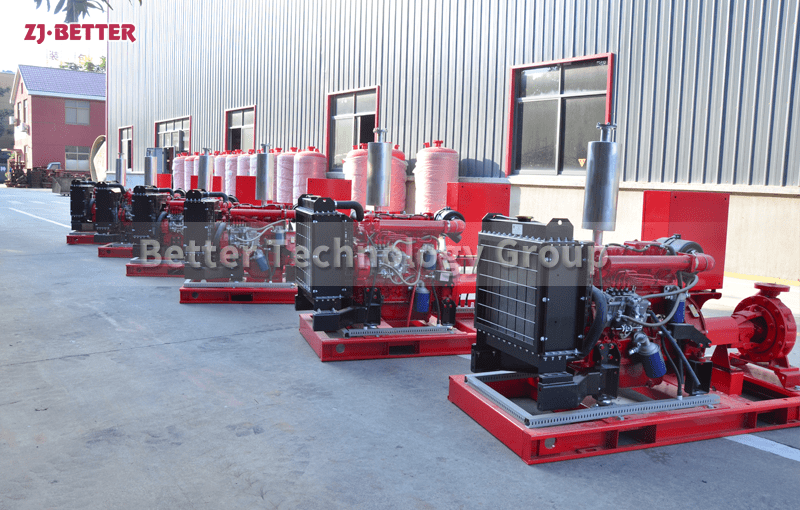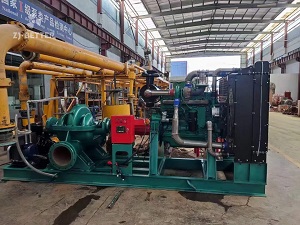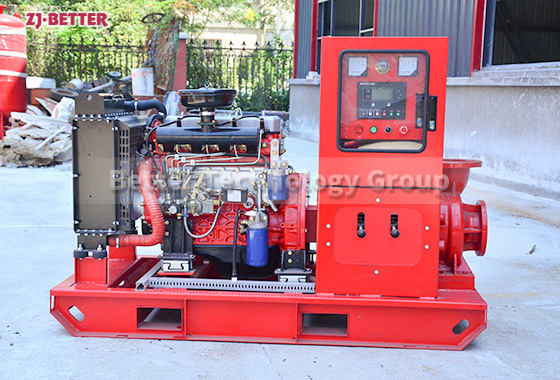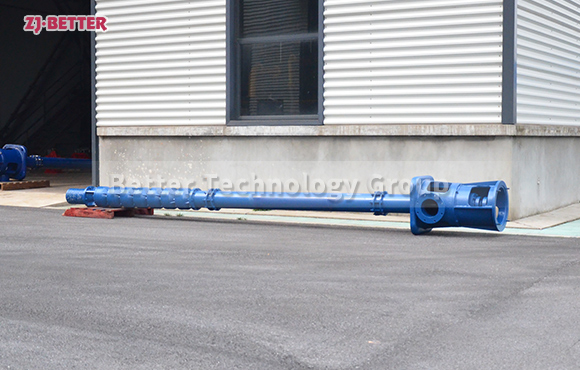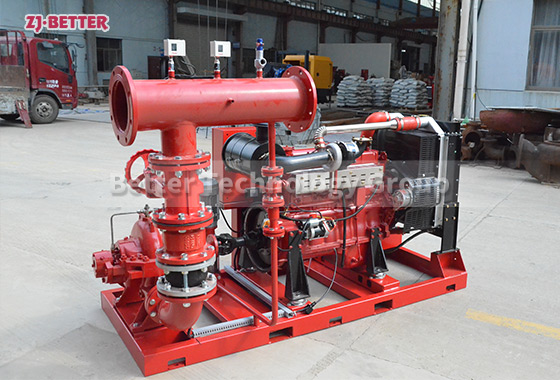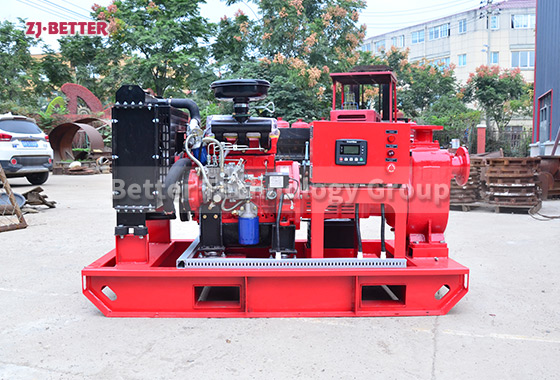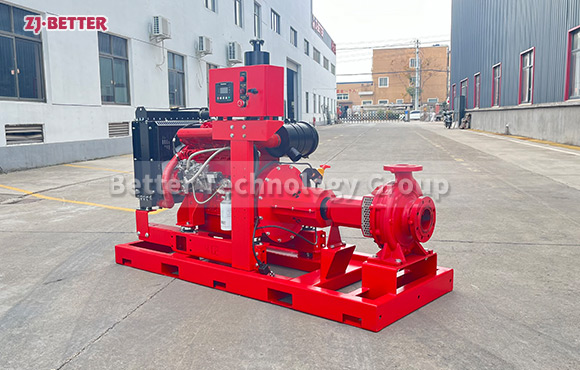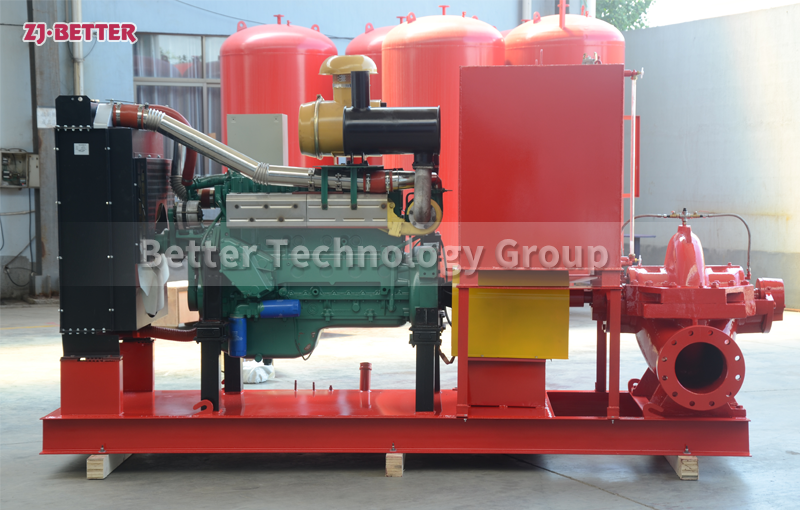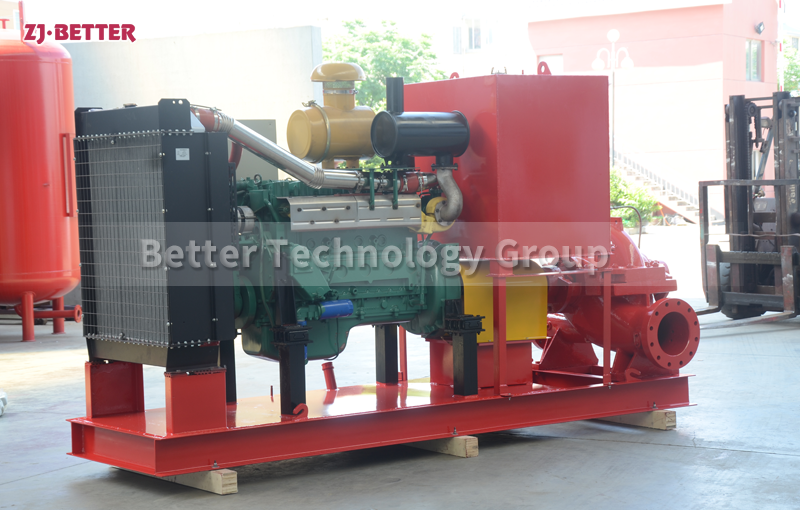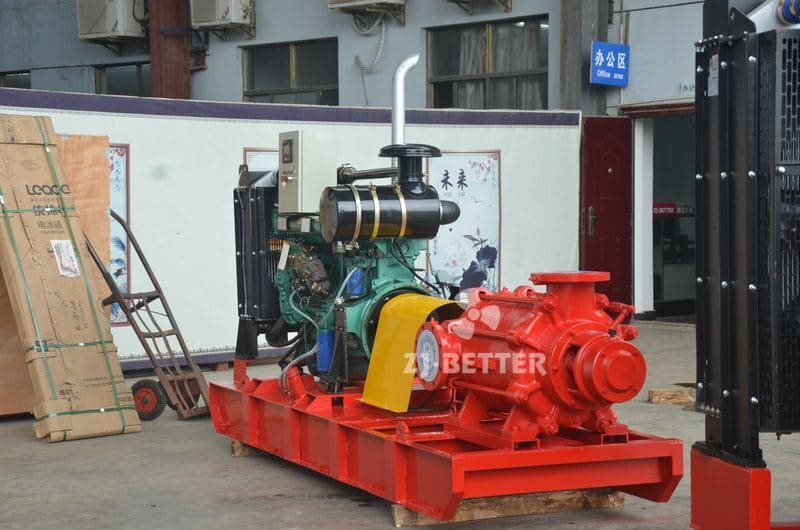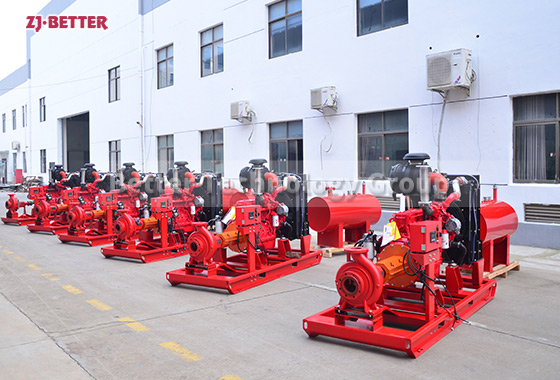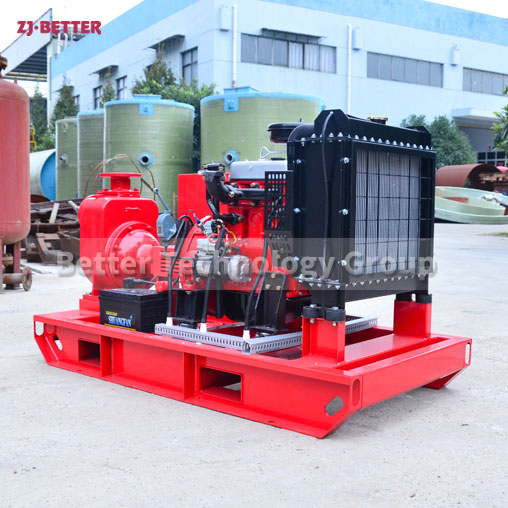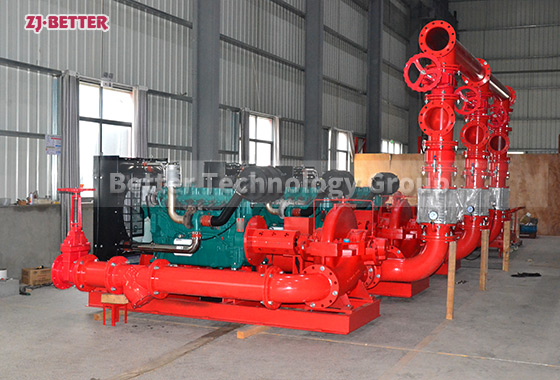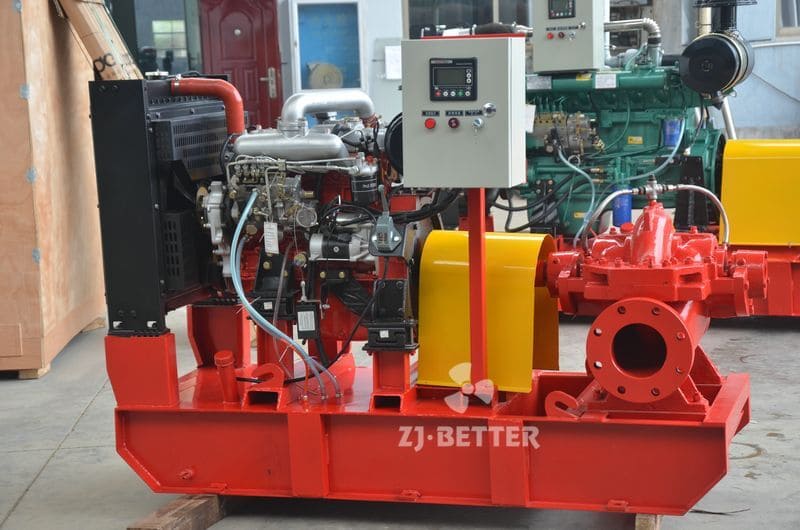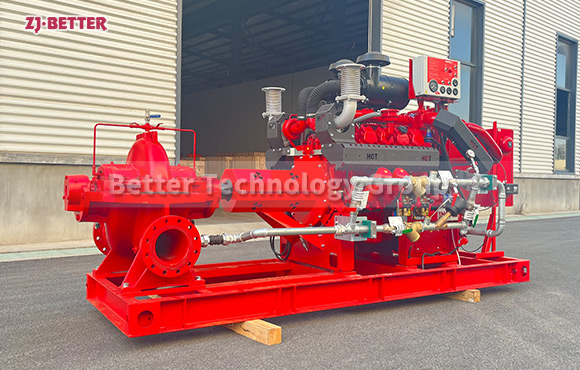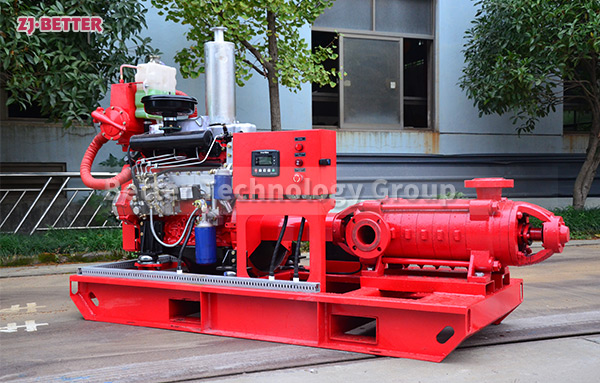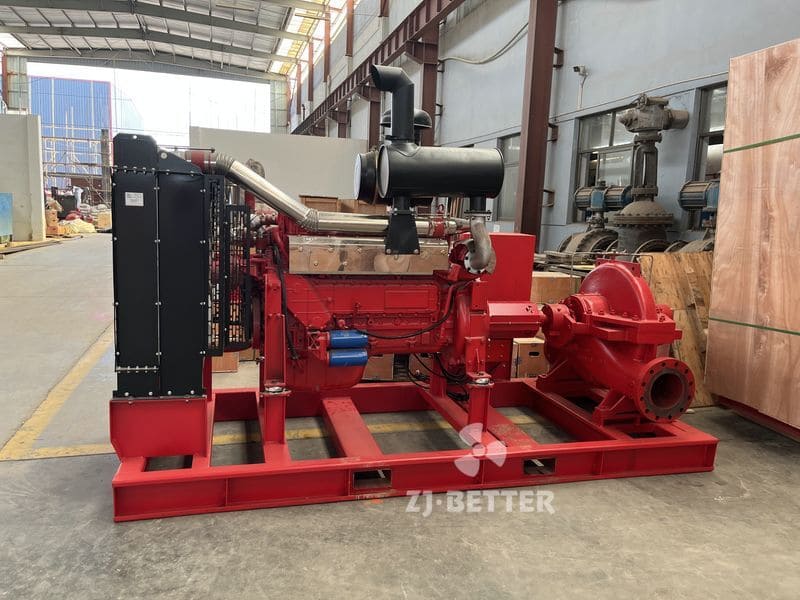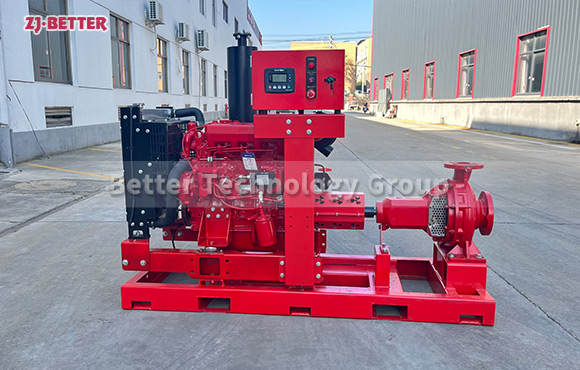Diesel engine fire pump set is suitable for various emergency standby pump occasions
The advantage of the diesel engine fire pump is that when a fire breaks out, the power supply fails, and the electric fire pump set cannot be put into use normally, the diesel engine fire pump set can be put into operation automatically to ensure the normal fire fighting. Compared with the electric fire pump set, the second advantage is that it does not need long-term investment in power supply, saving the mains power supply transformer and normal expenses. Diesel engine fire pumps are equipped with various automatic functions to meet customer requirements, ensure long-term normal standby status of the equipment, and put it into fire fighting work at any time.
The diesel engine fire pump set is also suitable for various emergency backup pump occasions.
As a fixed fire-fighting equipment, the diesel engine fire-fighting pump set has been widely used in fire-fighting diversion, especially for fire-fighting water supply in unexpected situations such as no power supply or abnormal power supply (mains power). The fire pumps equipped in the unit are horizontal single-stage and multi-stage fire-fighting special pumps. It is mainly composed of diesel engine, fire pump, connection device, fuel tank, radiator, battery pack, intelligent automatic control panel, etc.
The intelligent diesel engine water pump products developed by our factory are equipped with an unattended intelligent system as standard configuration. The product has the characteristics of mature technology, high degree of automation, superior performance, complete protection functions, reasonable structure, simple installation and high cost performance. At the same time, in order to meet the different needs of users and reasonable investment, the products are divided into multiple application series such as fire pumps, industrial emergency pumps, agricultural water pumps, marine water pumps, trailer mobile water pump stations, etc., which can be linked and switched with electric fire pumps.

